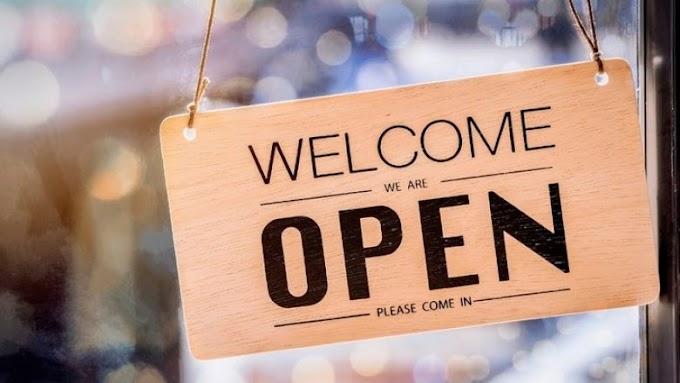By Megan McCardle
One day, the world will reopen. One day, you will be attending birthday parties, going to church, going on vacation. This is of course known. What you want to know is when.
I suspect it's the lack of "when" that makes people so impatient with isolation. If the authorities gave us a specific date, we could start planning. Without a date our quarantines seem to lie for no reason in eternity. This is the moment when our mouths begin to form the words, "I can't do this anymore."
Unfortunately, we are not trying to arrive at a specific date, but on an unknown day when the coronavirus is under control. So the only answer a responsible policymaker can give at this point is, "We're going to reopen when it's safe."
Yes, I can hear you crying, "But when will this happen?" Unfortunately, I can't tell you when. But I can give you a reason and how.
Why we will remove the restrictions is clear: We will do it because the virus can be controlled with less stringent means. Which brings us to the way: We will calm down when, in addition to washing hands and using masks, three new conditions are met.
First, the rate of viral transmission should drop until, on average, each infected person infects another person. In epidemiological jargon, the reproduction rate (R0) of Covid-19 should fall below 1.
However, R0 is partly a function of how many other people come in contact with a sick person. For now, there aren’t many, that’s why the epidemic seems to be slowing down. Unfortunately, if we all go back to acting like January 15th, R0 will rise again above 2 and our efforts will go to waste. So it’s better to be wrong by being a little late with the opening, than opening up earlier, because if we open up early, we get twice as bad: severe recession combined with a lot of casualties.
Getting the right timing also means that the public health infrastructure is ready to keep the infection low, identifying new cases, tracking down all those with whom you have been in contact, and tracking them down. isolated those people.
So our second criterion is the ability to do extensive surveillance (of viruses, not humans). This probably means a combination of policies: testing covid-19, both for active infections and for antibodies, a standard part of medical care; setting up case testing programs in any significant community; and offering volunteer testing easily and for free. We will need not only a lot of laboratory equipment, but also people to do the testing and explain the results.
Third, we must be able to act quickly: in quarantine not only the sick, but also all those with whom we have been in contact, so that the virus does not have the opportunity to spread.
Technological solutions, such as apps that detect when another phone is close to yours, can help. But we will have to build a staff and a whole new public health infrastructure, to track people and notify them about the exposure. We also need to research to provide volunteer centers, where patients can pass isolation without infecting roommates or family. Fortunately, we seem to have a lot of extra rooms at the moment.
Once the number of new cases has dropped, and we have the means to keep it low, we can begin to gradually lift restrictions - for example, allowing restaurants to reopen half of their normal capacity, or reopen schools. but keeping the children to a single teacher in a single class. This starts by removing some restrictions, carefully looking at the signs of explosions, and tightening the restrictions again, when necessary.
This is probably not what you hoped to hear. What I wanted to show you was that in a few weeks, at most, you could be back in your former life. But the government did not take your former life; you got the virus. The government cannot return it except by stopping Covid-19. So the important question is not, "When will the government lift the restrictions?"
For those of us who are sick of just sitting at home waiting, a third question may be even more important: "How can I help the government do what it needs to do?"
There are two answers to that question: "Supporting politicians proposing solutions instead of days on the calendar," and "staying home now, without complaining or cheating, so that we can all lower R0 as soon as possible." possible ”.
If we all do the same thing, we can certainly start coming out next month. Better yet, I can avoid it to return to isolation as soon as we get out. / The Washington Post
One day the world will reopen, but don’t ask when
ersi
April 19, 2020
Pageviews past week
Created By eaadhar | Distributed By Blogger Themes




0 Comments